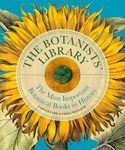![The Foundation of the Origin of Species The Foundation of the Origin of Species]()
Click to have a closer look
About this book
Contents
Customer reviews
Related titles
About this book
A reprint of a classical work in the Cambridge Library Collection.
The development of Charles Darwin's views on evolution by natural selection has fascinated biologists since the 1859 publication of his landmark text On The Origin of Species. His experiences, observations and reflections during and after his pivotal journey on the Beagle during 1831–36 were of critical importance. Darwin was not, however, a man to be rushed. While his autobiography claims that the framework of his theory was laid down by 1839, its first outline sketch did not emerge until 1842. That essay was heavily edited, with many insertions and erasures. It formed the vital kernel of his more expansive but also unpolished and unpublished essay of 1844. Following careful editing by his son Francis, both essays were published in 1909, and are reproduced here. Reading these side by side, and together with the Origin, permits us to scrutinise selection and evolution truly in action.
Contents
Introduction
Essay of 1842
Part I
1. On variation under domestication, and on the principles of selection
2. On variation in a state of nature and on the natural means of selection
3. On variations in instincts and other mental attributes
Part II
|4. On the evidence from geology
5. On the evidence from geology
6. Geographical distribution
7. Affinities and classification
8. Unity of type in the great classes
9. Abortive organs
Essay of 1844
Part I
1. On the variation of of organic beings under domestication, and on the principles of selection
2. On the variation of organic beings in a wild state, on the natural means of selection, and on the comparison of domestic races and true species
3. On the variation of instincts and other mental attributes under domestication and in a state of nature, on the difficulties in this subject, and on analogous difficulties with respect to corporeal structures
Part II. On the Evidence Favourable and Opposed to the View that Species are Naturally Formed Races, Descended from Common Stocks
4. On the number of intermediate forms required on the theory of common descent, and on their absence in a fossil state
5. Gradual appearance and disappearance of species
6. On the geographical distribution of organic beings in past and present time
7. On the nature of the affinities and classification of organic beings
8. Unity of type in the great classes, and morphological structure
9. Abortive or rudimentary organs
10. Recapitulation and conclusion
Index
Customer Reviews








































